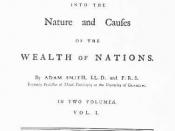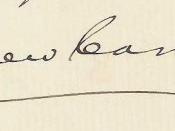1INTRODUCTIONThe role of business has been changing over the centuries. Throughout the existence of shareholding organisations there have been different theories (Jones v. H. F. Ahmanson & Co., 1 Cal. 3d 93 (1969) regarding the role of business. Organisations too have been changing their role to adapt to resource, capital and society pressures (The Hugh & Helene Schonfield World Service Trust).
Modern corporations are multidimensional. Therefore, like individuals, they too cannot be judged by a simple measure of profit maximization. They are viewed not only as wealth-creators for their legal owners (their equity shareholders), but also as vehicles for enhancing both the local economic and influencing public policy. They are expected to meet the diverse expectations of all their stakeholders. While earning their profits, they must conduct themselves righteously, upholding social norms and keep in mind the well being of all their stakeholders. In the end, they must be perceived as having enriched all of society.
If they have a multidimensional role, they cannot be judged in terms of a single measure.
There are numerous examples of how corporations can enhance and essentially deliver to numerous incentives to increase public awareness and social, economical benefits in the community at large. There are various paradigms I have taken into account of how these incentives can be perceived by communities as being both good and bad. This subject raises a range of questions, such as;â¢Does a company that moves its manufacturing base from North America to Mexico fully take into account or understand the impact to the local communities?â¢Can we class the price of labour and therefore lowered manufacturing costs as a basis for potentially devastating a local community?â¢Is it cheap labour or is it slave labour?â¢Is this the exploitation of resources or is it an opportunity for 'third world countries' to...


